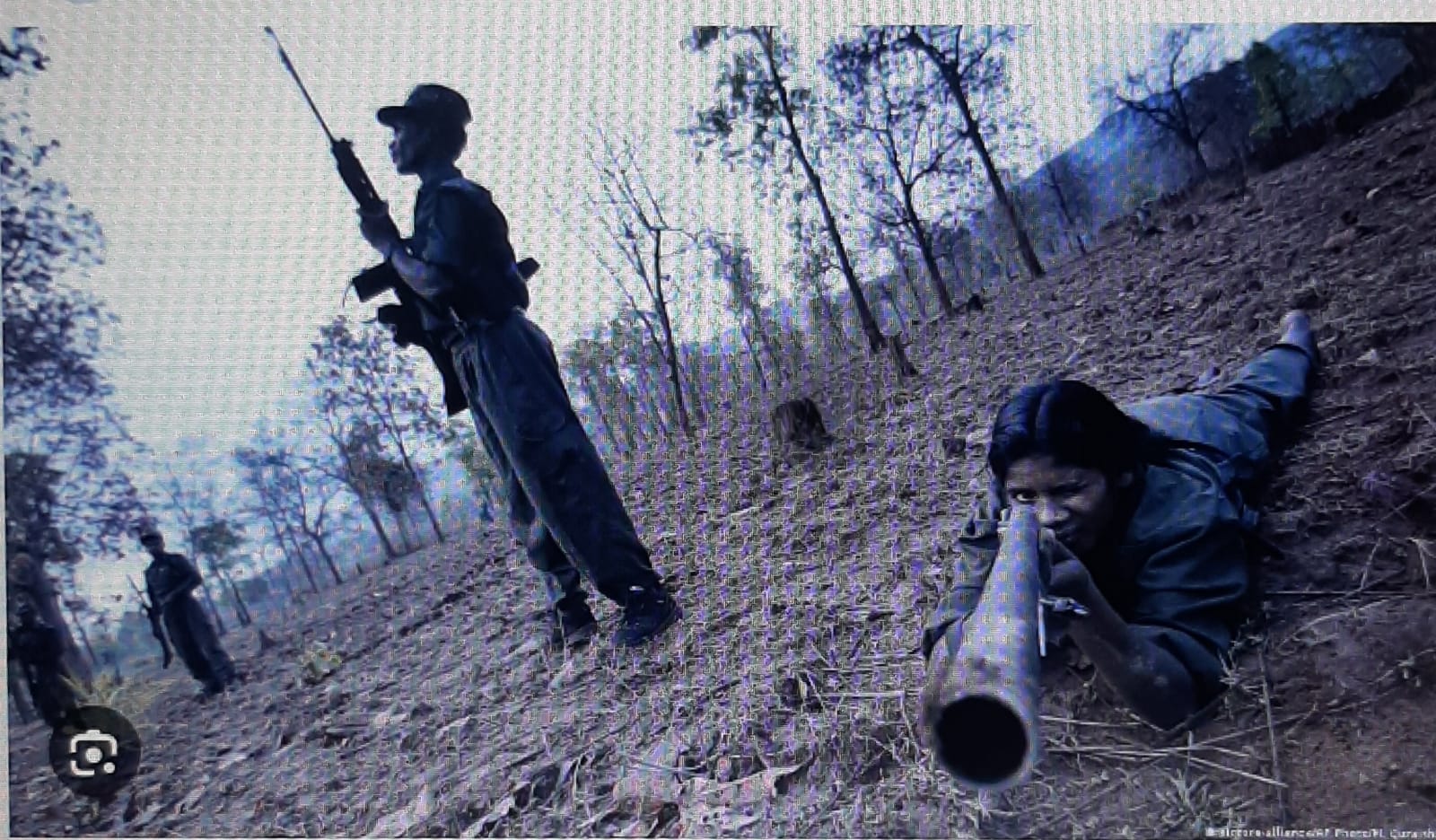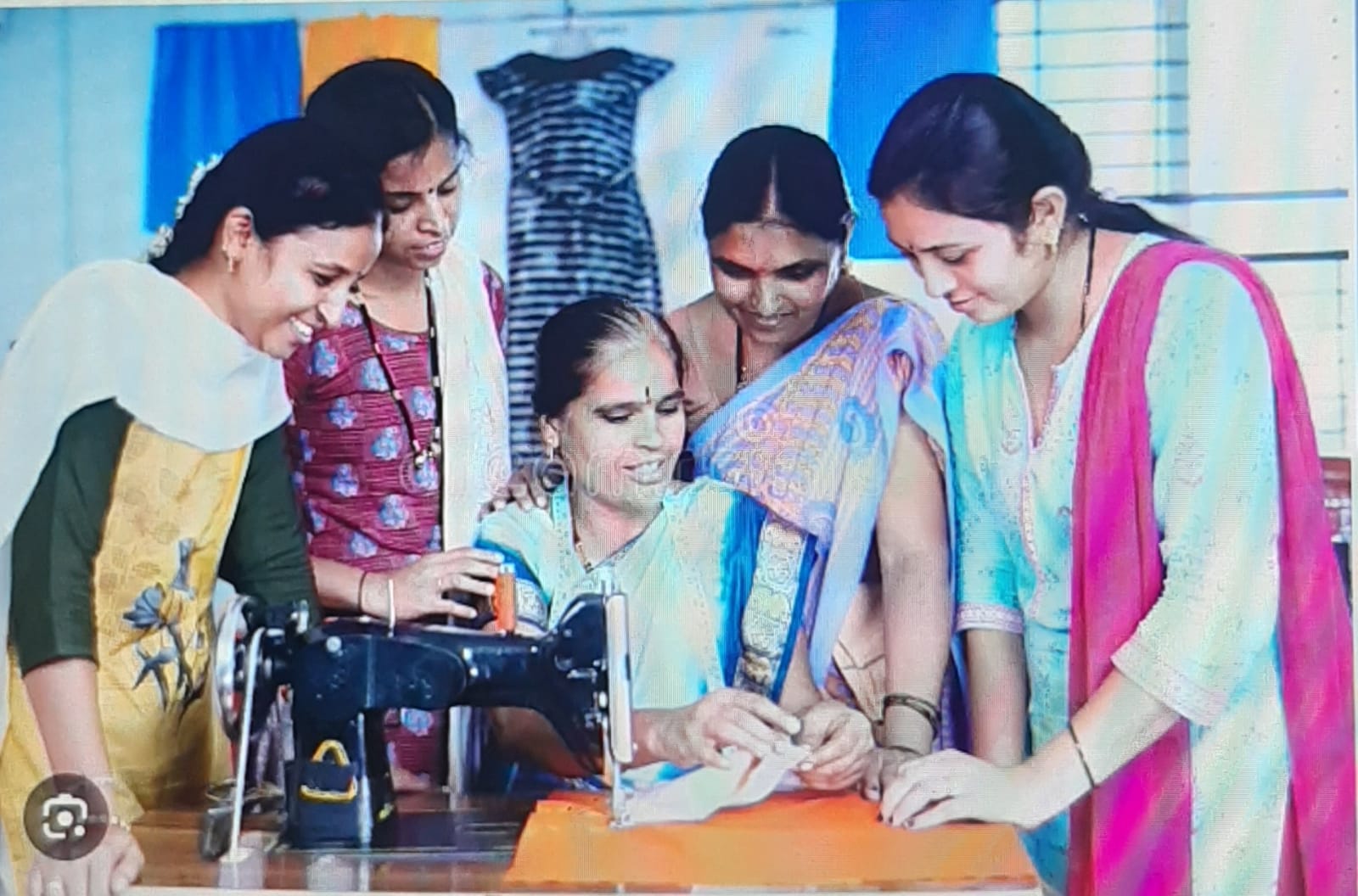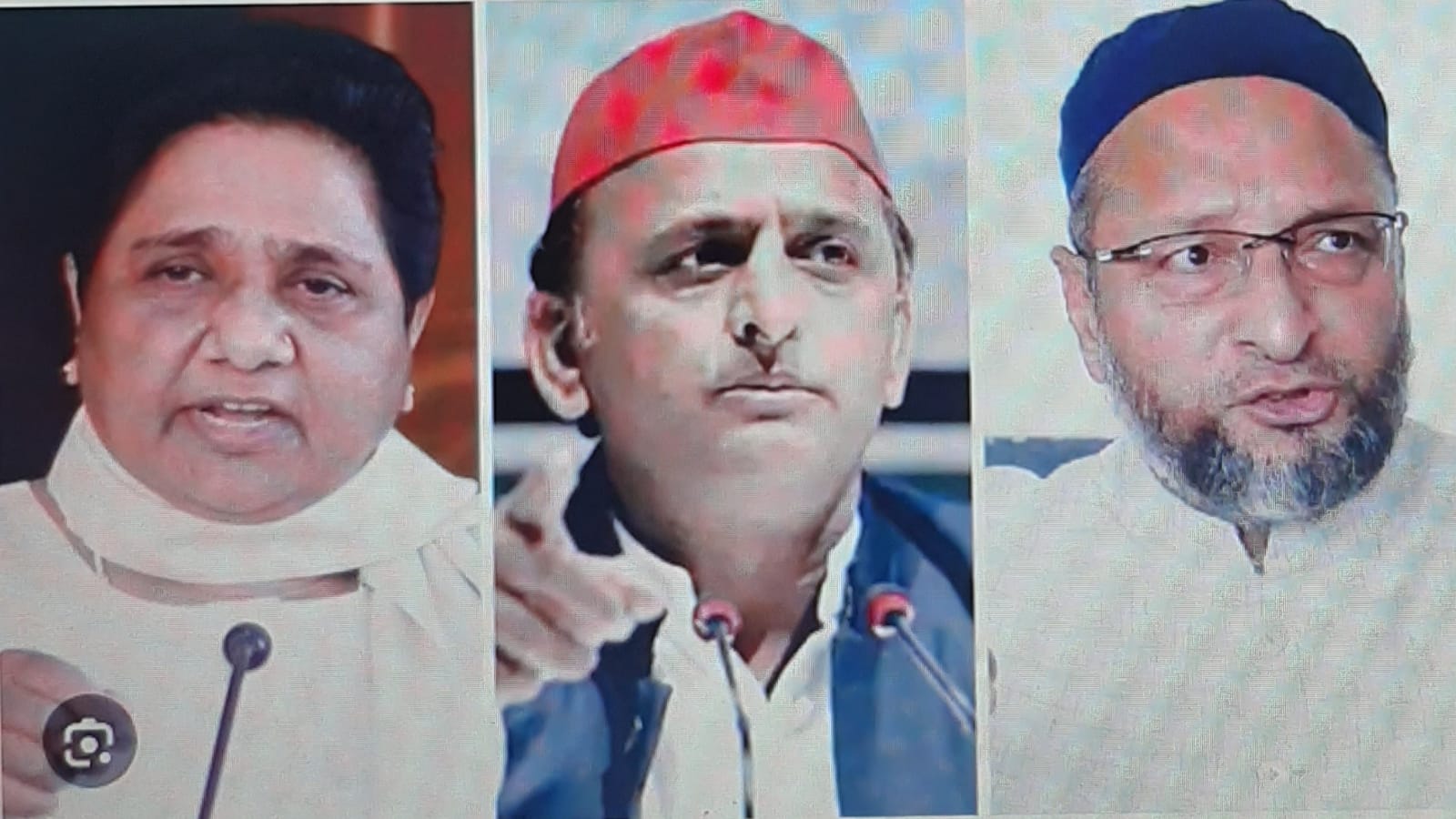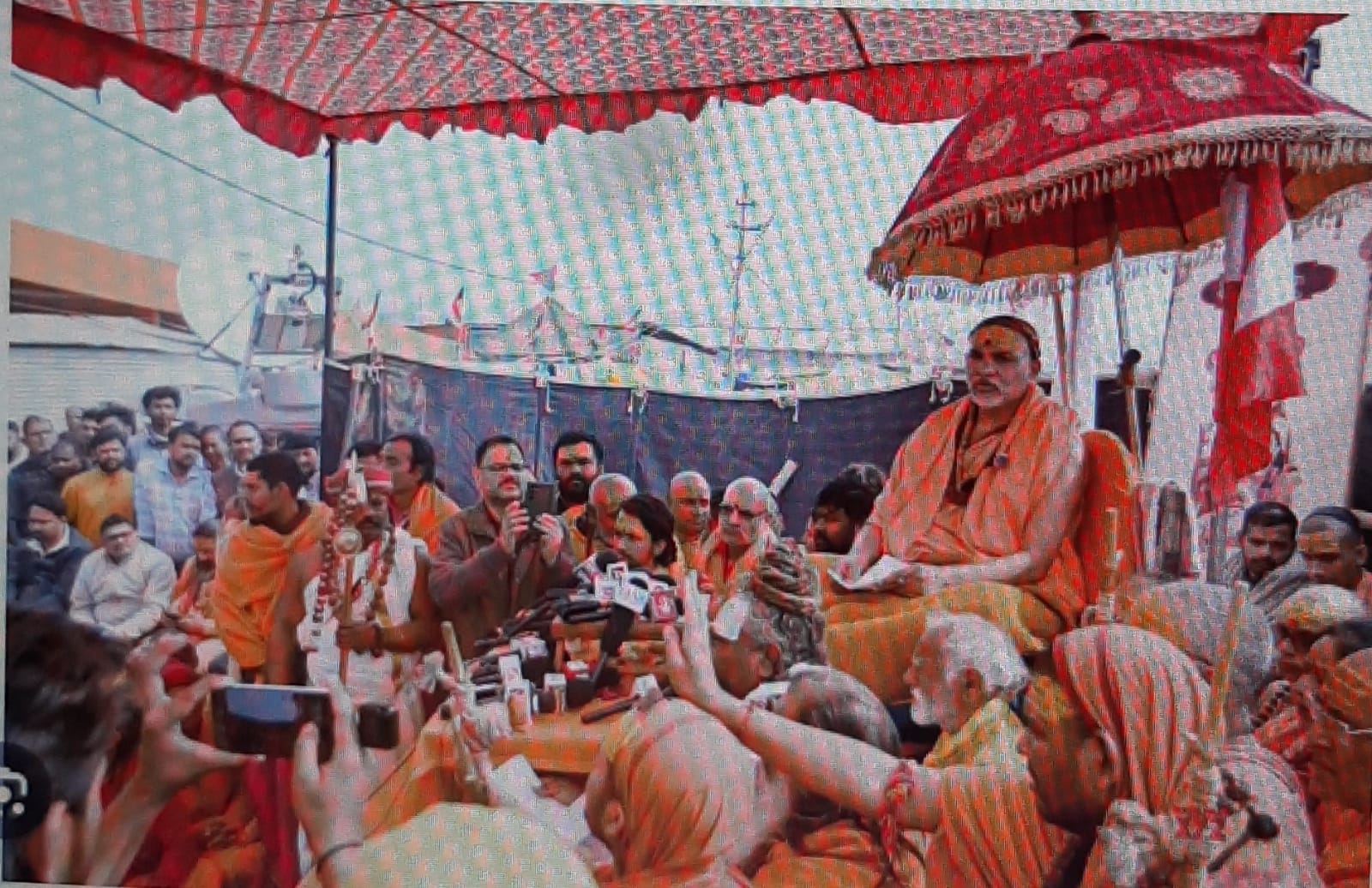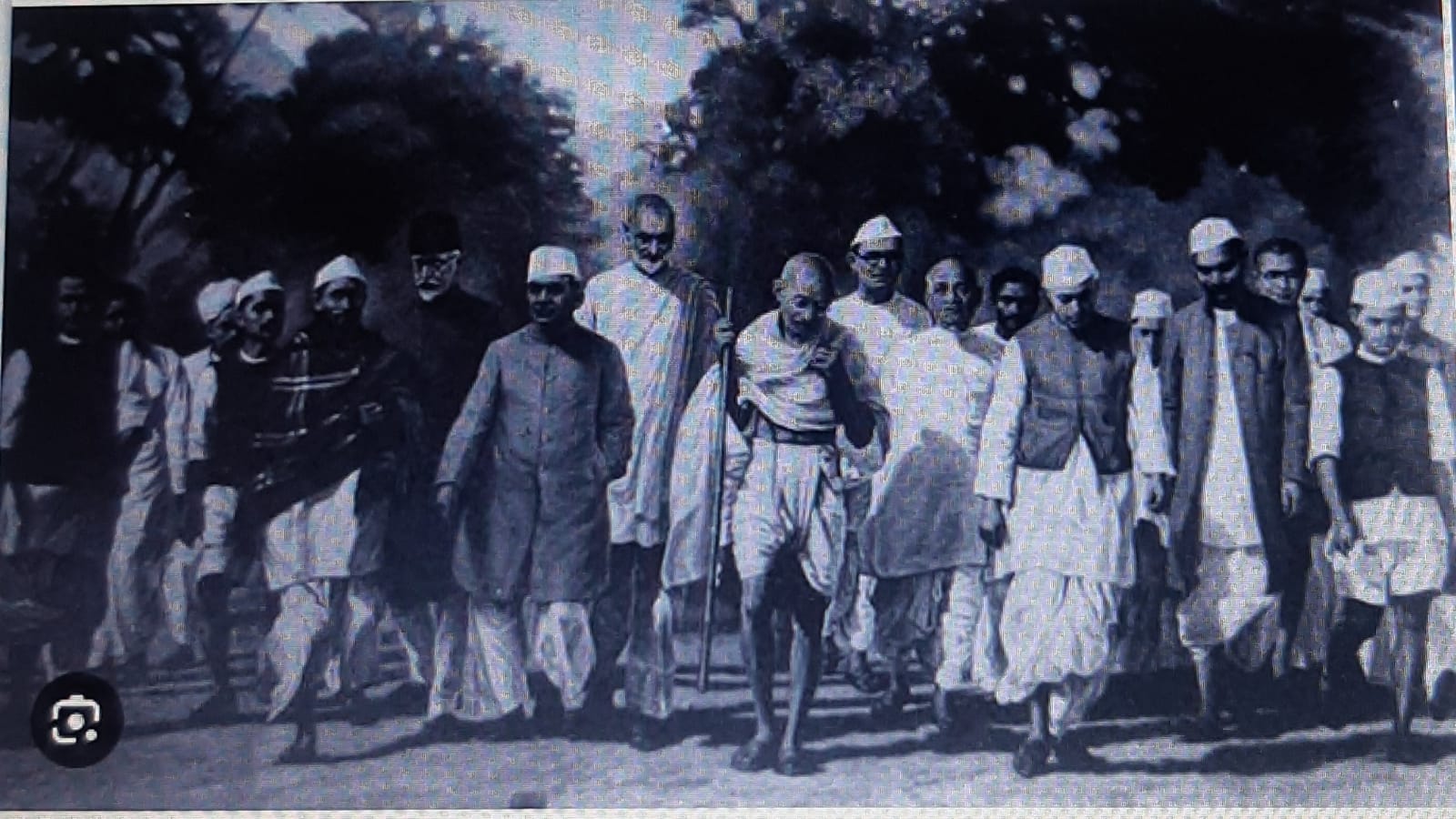
Idea of ‘Congress-mukt Bharat’ has been propagated by the ruling dispensation in recent times and all failings of modern India have been attributed to Nehru, Gandhi family and the Indian National Congress. But reality is more complex and it seems that the idea of ‘Congress-mukt Bharat’ might remain a dream as almost all political parties seem to be afflicted by the same virus which turned mighty Congress into a political party of self- serving individuals, writes former IAS officer Sunil Kumar
India’s independence from colonial rule in 1947 through non-violent political struggle under the leadership of Mahatma Gandhi and the Indian National Congress was perhaps a unique moment in world history. There was no such precedent in modern history.
Political freedom was expected to pave the way for social and economic freedom. Gandhi ji also spoke of moral freedom, wherein we were to get rid of ‘slave mentality’ as Jayaprakash Narayan put it in his address delivered on February 18, 1969 under the auspices of the Indian Committee for Cultural Freedom, New Delhi. This was an attitude wherein people believe that there is nothing that they can do and everything can be done only by the Government.
Mahatma Gandhi had a different world view on State and government. He believed that leaders of independence struggle should take upon the work of making social and economic freedom meaningful for the masses. He was working on a draft resolution for consideration by the AICC at the time of his assassination on 30 January, 1948. The said resolution read as under:
“Though split into two, India having attained political independence through means devised by the Indian National Congress, the Congress in its present shape and form, that is, as a propaganda vehicle and a parliamentary machine, has outlived its use……….For these and other similar reasons, the A.I.C.C. resolves to disband the existing Congress organization and flower into a Loksevak Sangh under the following rules with power to alter them as occasion may demand…”
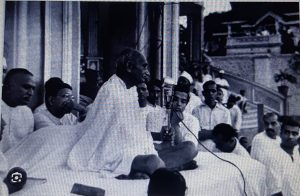
This, however, was never considered by AICC and rest is history. Congress under Nehru went on to become the dominant ruling party at the Centre and in the States. The first major dent in Congress’s ‘one party dominant rule’ happened in 1967 when Samyukta Vidhayak Dal (SVD) governments came to power in several States. However, these were short lived.
This was also the time when the opposition parties nursed the idea of ‘Congress- mukt Bharat’. It could be then justified as the opposition parties wanted to strengthen their own parties and come to power. It is ironical that in the 21st century, it is the ruling party which nurtures the idea and works towards the goal of ‘Congress-mukt Bharat’ even when it strides the political scene like a colossus and Congress is a pale shadow of it’s former self! They approvingly quote Gandhi’s draft resolution that was published after his death and assert that they are only carrying out the unfinished agenda of Mahatma Gandhi. In my view, it is a travesty to think that poor electoral performance of the Congress party in Lok Sabha and Vidhan Sabha elections alone is sufficient to realize the unfinished agenda of Mahatma Gandhi, as our leaders would like us to believe. But more on this later.
We must remember that Gandhiji ‘wanted to purify politics and make it an instrument of service rather than domination and self-aggrandizement’[i] Is present day politics anywhere near it? I will just focus on where we stand vis a vis politics as an instrument of service rather than domination and self-aggrandizement.
It is true as Congress became firmly entrenched in power at the Centre and in the States, exercise of state power to dominate politics and further self-interest became pre-dominant traits of politicians. However, in the first twenty five years of Indian republic, leaders of opposition parties were not afraid to brave police lathi-charge and even face police bullets and risk imprisonment as they had experience of resisting colonial rulers. The ruling party too did not treat political opponents as criminals. However, these changed with the imposition of Emergency in 1975 by Mrs. Indira Gandhi. The picture of a handcuffed George Fernandes contesting the 1977 Lok Sabha elections from behind bars despite lifting of Emergency became a defining image that, in a way, symbolized what the 1977 Lok Sabha election was all about.
However, by the early 1980s, as generational shift took place in politics, the quality of leaders began to show signs of change. Instances of David taking on the Goliath – as was the victory of fiery trade union socialist leader George Fernandes over S.K.Patil of Congress in the 1967 elections from Bombay South constituency portrayed – slowly became a thing of distant past. Images of a sitting Chief Minister of Bihar canvassing in the scorching summer heat sitting on the pillion of a motor cycle are now hard to even visualize. As money and muscle power became pivotal in Indian elections in post 1975 scenario, most leaders changed with the times. Leaders like Madhu Limaye quitting electoral politics in early 1980s and refusing to contest, as they were not prepared to compromise on their values, were the exception rather than the rule. Simplicity and frugality of leaders like Buddhadeb Bhattacharya and Manik Sarkar from CPI(M), former Socialists like Mohan Dharia, Madhu Dandvate or Mrinal Gore and Nanaji Deshmukh of Bhartiya Jan Sangh now seem too good to be true.
Political leaders were now beginning to move with the times…they were being led rather than leading. Their ability to defy popular mood and take an independent stance began to decline. Remember how MLAs in Bihar were forced to resign their seats in the legislative assembly after being ‘gheraoed’ in their homes by mob of lumpen elements during the Student Movement of 1974 in Bihar. Leaders appeared to be just following the popular mood rather than staying true to their conviction. Withdrawal of the Non-cooperation Movement by Gandhi in the wake of the Chauri Chaura incident (much against the then prevalent popular mood) now began to seem like a distant dream!
Inner party democracy too was tossed aside by mid-1980s and elected leaders were transformed into puppets on a string following the passage of the Anti-Defection Bill. The transformation was complete by mid 1990s when Parliament was rocked by the ‘Cash for Votes’ scandal, Hawala scandal etc. and the launch of schemes like MPLADS and MLALADS to mollify MPs/MLAs and ensure survival of the ruling dispensation.
Idea of ‘Congress-mukt Bharat’ has been propagated by the ruling dispensation in recent times and all failings of modern India have been attributed to Nehru, Gandhi family and the Indian National Congress. But reality is more complex and it seems that the idea of ‘Congress-mukt Bharat’ might remain a dream as almost all political parties seem to be afflicted by the same virus which turned mighty Congress into a political party of self serving individuals.
First, it is the politics of pelf and power. The way state power is abused by leaders of all political parties at the Centre and in the States to bludgeon their political opponents into submission seems to have been perfected. It is practised by the largest political party: the BJP as well as the Congress, TDP, BRS, LDF, AITMC, SP, RJD or BJD as and when they are in power. It seems it is ‘pay back’ time for all in Indian politics.
Political survival is now extrinsically linked with being in power. It seems no one wants to warm the benches in the opposition. To quote JP,
“Everyone wants to become a member of this assembly or that assembly, a footling minister at least and thinks that in that way alone can he serve his country. Assemblies, parliaments, ministers have all their proper place, but they cannot do everything….”[ii]
The goings on in States like Karnataka, Goa, Maharashtra, Telangana, Madhya Pradesh, Rajasthan, Bihar, Jharkhand, West Bengal, Haryana, Manipur etc. in the last decade or so seem to vindicate JP. There is little to choose between one or the other political grouping. The only ideology seems to be self aggrandizement.
Second, ‘High Command’ politics is now the accepted norm. Leaders who happen to parachute and land in one party or the other (mostly before elections) are more likely to get tickets from political parties than their own grassroot workers. Probability increases manifold if they also happen to be moneybags. Or what else would explain the fact that almost 31 percent of all candidates in the last Lok Sabha general elections were crorepatis and 93 percent of MPs are now self-declared crorepatis!
Third, inner-party democracy has now been truly buried in almost all parties. Sycophancy has become the norm rather than the exception. The Anti-Defection Act has had the unintended consequence of making MPs and MLAs virtual slaves and living in dread of party ‘whips’. Leaders who dare to dissent soon find themselves in political wilderness and host to all types of investigative agencies ranging from the police, CBI, Income Tax to the Enforcement Directorate. And most politicians cannot give up their air conditioned comfort and are more than ready to undergo the ‘dry- cleaning’ process in the ‘washing machine’ of the ruling party and emerge lily white.
Fourth, the lack of ideological moorings, most sadly evident in the Grand Old Party of India and other parties that pass off as ‘socialist’ parties today is especially jarring.
Fifth, populism, the preponderance of shallow peripheral issues in political discourse, a refusal to enter into serious debate on grave subjects of citizens’ very survival in a deteriorating natural environment and amidst growing man-made disasters, the unquestioning acceptance of communalism, hostility, mutual disrespect and hate speeches are all things that have been steadily degrading Indian politics.
Sixth, political leaders are more educated, suave and tech-savvy than their counterparts in early years of independent India. But their ability to take risks and display raw courage seems to have been severely diminished.
Politics has now become an instrument for domination and self-aggrandizement. If we just look at how their salary and perks have grown over the years then it is evident that their ‘disconnect’ with politics for public service has become pronounced. The lack of respect for citizens’ rights, human rights, and the basic tenets of governance stand out in Indian politics today. All this has to change.
Nevertheless, at the core, citizens and voters still identify more with leaders who are willing to identify with them. What made M.K.Gandhi Mahatma Gandhi was his deep connect with common men which got reflected inter alia in his ‘padyatras’, ascetic attire and travel in third-class train compartments. In India somehow walking on foot has been associated not only with the poor but also ascetics. And saints are revered. It was perhaps his ‘padyatra’ from Kanyakumari to Kashmir that paved the way for Chandrasekhar to become the Prime Minister. Likewise, ‘Bharat Jodo’ yatra of Rahul Gandhi helped him to shed his ‘reluctant politician’ and the ‘Pappu’ image thrust on him by the BJP and emerge as a serious challenger in Indian politics. In my view, road shows and long yatras in designer vehicles (christened as ‘Raths’) do not enjoy the same traction with people as ‘padyatras’.
And this holds out hope…for India and democracy in India. Voters may just be waiting for a new political leadership to emerge (just as it did a century ago) where leaders display empathy, humility, confidence and faith in the intrinsic goodness of all human beings and citizens decisively exercise their moral judgment about ‘good’ and ‘bad’. In order to put politics on a meaningful, ideology-based footing, the responsibility in almost equal measure rests with us, the people, and with those who claim the mantle of political ‘leadership’ today. An affirmative vote for politics of service rather than politics of power and self- aggrandizement will truly strengthen Indian democracy.
(Sunil Kumar is a visiting faculty in Gokhale Institute of Politics and Economics and a member of Pune International Centre. He is also a former civil servant. Views expressed above are personal.)
[i] Gandhi After Independence – Jayaprakash Narayan, Edited transcript of a talk delivered on February 18, 1969 under the auspices of the Indian Committee for Cultural Freedom, New Delhi. https://www.asj.upd.edu.ph/mediabox/archive/ASJ-07-03-1969/narayan-gandhi%20after%20independence.pdf
[ii] ibid



